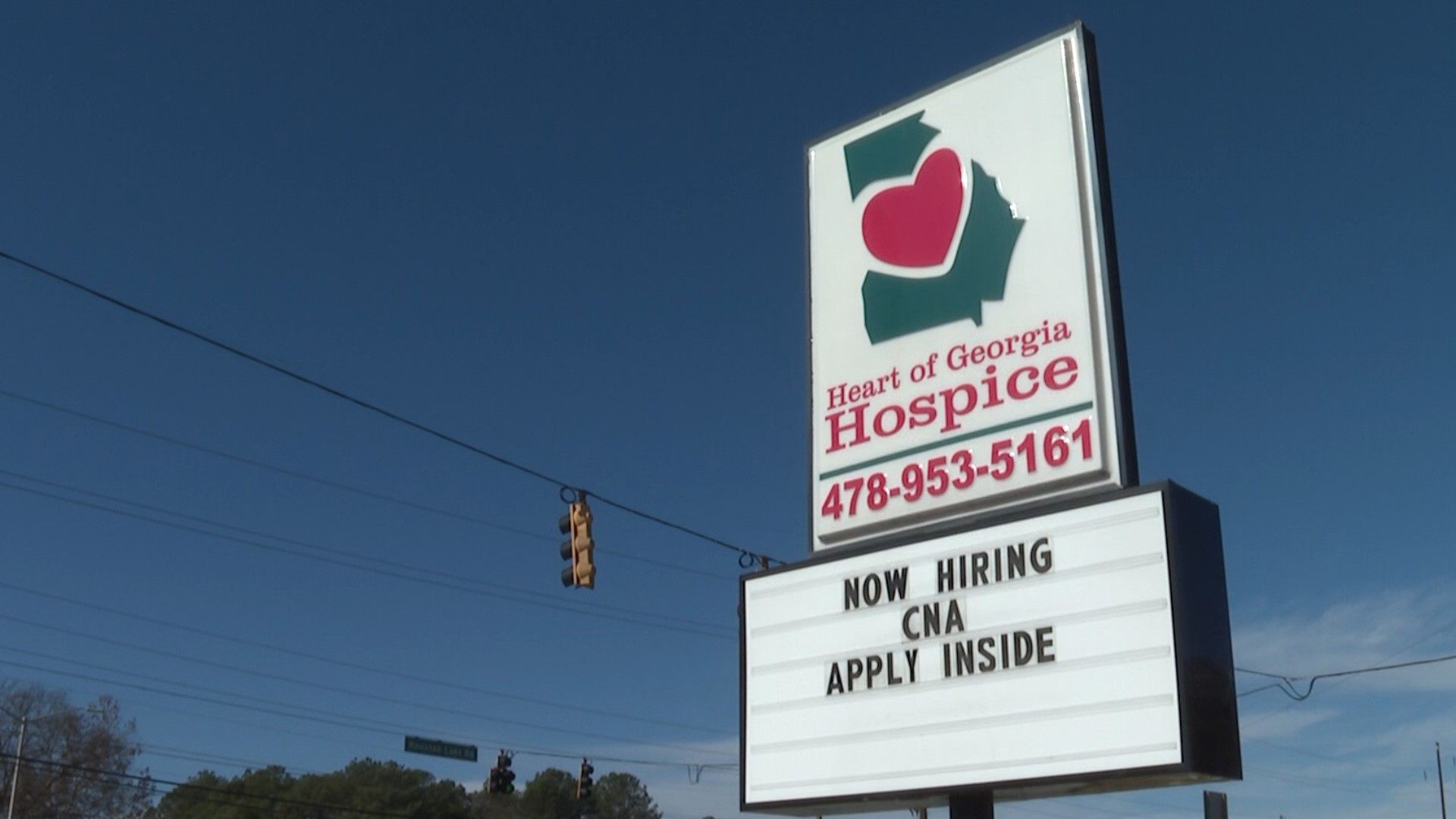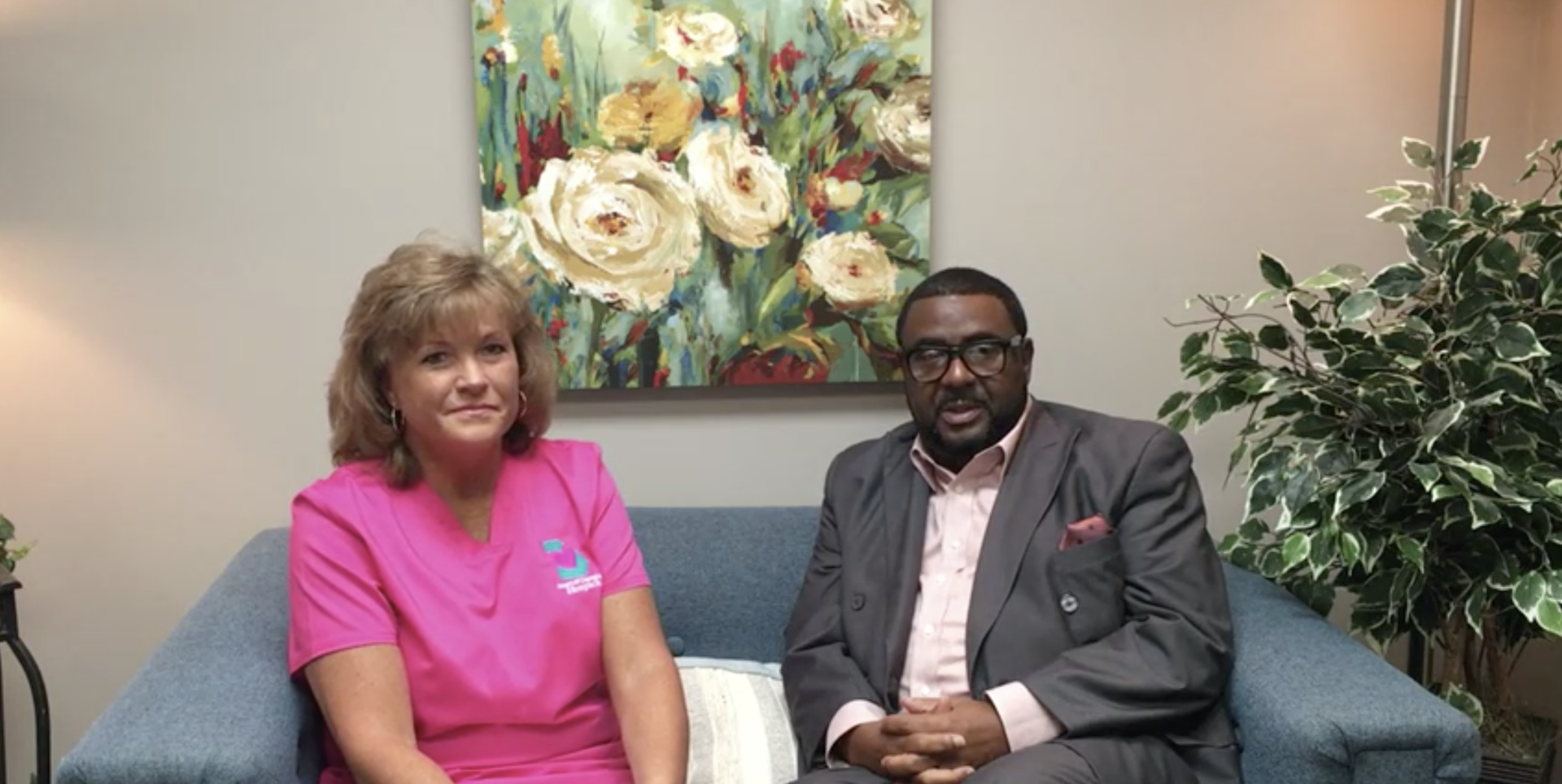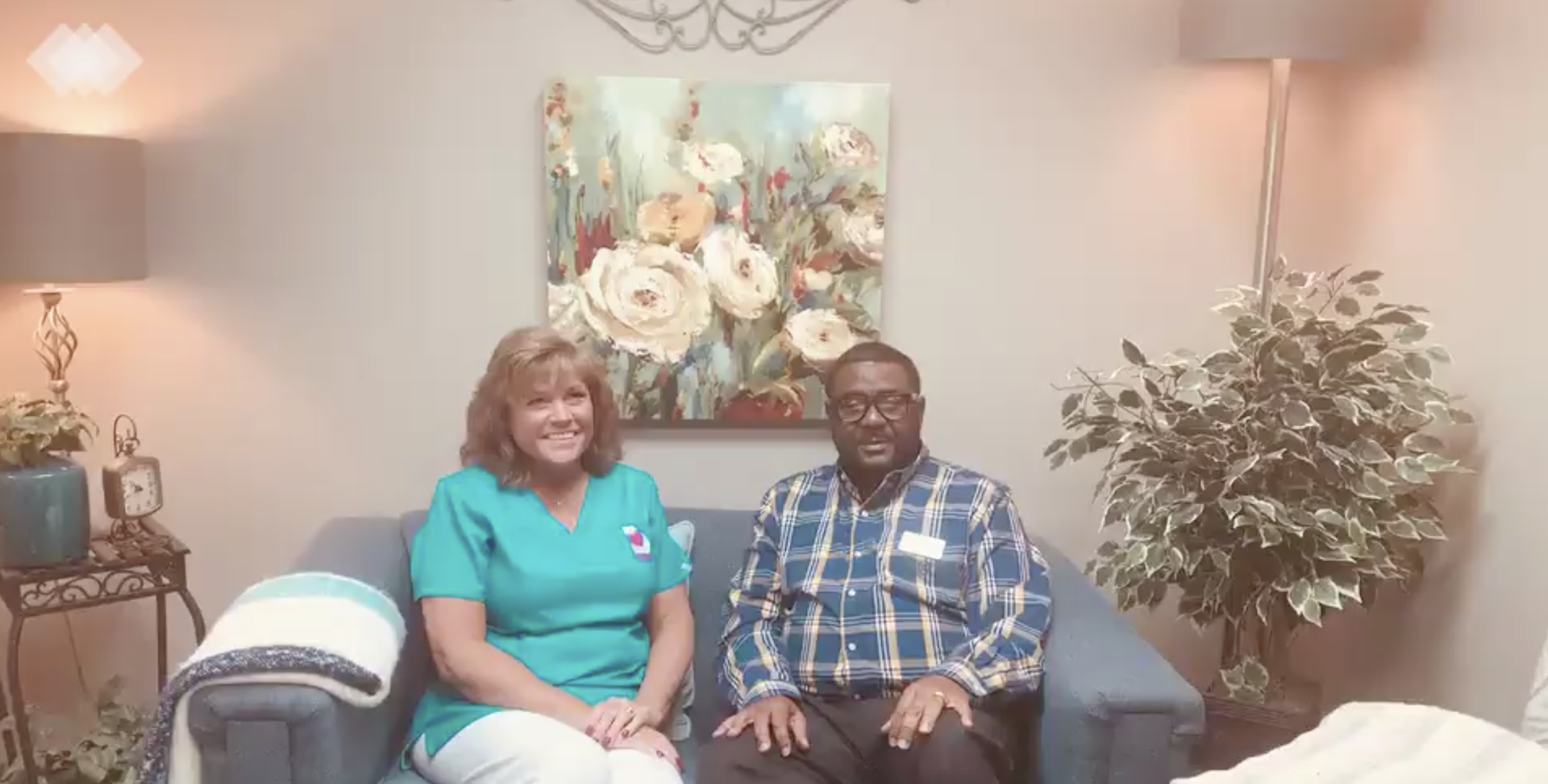EVENTS
EVENTS
HOME > EVENTS
Upcoming Events
List of Services
PAST EVENTS
Take a look at some of our past events and see an overview of what took place at each one of these events.

By Cecily Stoute
•
11 Jan, 2024
WARNER ROBINS, Ga. — This thrift store might sell a variety of goods, but the proceeds help terminally ill patients get the end-of-life services they need. Sheila Redding is the store manager for the Heart of Georgia Hospice thrift store. She enjoys the opportunity to give back. "I want to be able to give back to the community and this was the way I could do it," Redding said. She tries to draw customers in by selling a variety of products. "We try to make it unique and different that people will want to come in here and shop and then we let them know that all our proceeds go to helping a family that's in need for hospice," Redding said. Beth and Ron Clymer donated to the store in 2016. After their first visit, they became volunteers. "Ended up talking with the manager, who invited us to become volunteers and I guess the rest is history. We've been here ever since," Beth said. During their volunteer time, Beth's sister needed to go into hospice and at that point, it was an easy choice for where she should go. "We were making that decision for hospice and I said 'no I want to have her put in Heart of Georgia Hospice.' I specifically asked for that," Beth said. Gene Saunders said the mission of the store is to provide more for the community. "When people from the community engage, whether they donate, whether they come and volunteer, it all goes back into this community to help the people that can't help their circumstance and we can be there to help them," Saunders said. Since 2021, the thrift store has provided more than $80,000 for hospice services. Redding wants to continue to make an impact. "I mean my vision is to make more money so we can help more families so every day I come in here, it's a challenge. I give myself a challenge I make sure that my team and I are just working hard to get stuff out," Redding said. The thrift store has a variety of sales every month. You can find the calendar on their Facebook page . The store is located at 1851 Watson Boulevard.

By Dr. James Louis Bumpus
•
06 Aug, 2020
Dr. James Louis Bumpus, is the Chief Development Officer for Heart of Georgia Hospice and Mrs. Lisa Mount, is the Bereavement Counselor for Heart of Georgia Hospice Dr. James Louis Bumpus- “Hello- I am Dr. James Louis Bumpus, with the Heart of Georgia Hospice and I am joined today by, Mrs. Lisa Mount, our certified bereavement counselor.” This presentation is sponsored by the Heart of Georgia Hospice as a part of an ongoing educational series on unique issues people face in our community related to managing and coping with emotional hardships associated with the impact of the novel COVID-19 virus, as well as, hardships associated with grief because of various kinds of loss. Today’s focus is on feelings and emotions associated with hidden grief or hidden sorrow. Welcome, back Lisa. Recently, a friend said to me that she had become overwhelmed by unsure feelings (knows she’s feeling something, but cannot describe it or make sense of it) around dealing with the loss of a loved one and not being able to be present with her relative when he passed and then not being able to celebrate his life in pre- COVID 19 ways with the family gathering over food and a traditional church funeral. Lisa help me make sense of this.” Mrs. Lisa Mount- “Well this COVID -19 situation and pandemic has changed our lives in a whole lot of ways and in a lot of unexpected ways. It certainly has impacted how we grieve. There is a new term that has come on the horizon and that term is disenfranchised grief .” Dr. James Louis Bumpus – “ Disenfranchised grief . Okay.” Mrs. Lisa Mount- “Yes, and what that means is grief is that it is a grief that is not acknowledged or able to be acknowledged by society at large. Grief that is minimized and may not be understood by people. So as we have been isolated and separated during this pandemic we have been left alone with our grief feelings many times. And disenfranchised grief is grieving the loss of contact with others. An example may be the loss of a pet. Some people feel that we should not grieve the loss of a pet in the same way you would grieve the loss of a loved one. So when we do grieve the loss of our dog or cat sometimes that is not acknowledged by society as at large. And so we are left alone with our grief feelings to process. Another type of disenfranchised grief might be a loss that happened a long time ago and you have not been able to effectively work through. And so people kind of give us a couple of weeks it seems as if to get over a loss. That really is not a good time frame. It takes lot longer than that.” Dr. James Louis Bumpus- “Loss is loss.” Mrs. Lisa Mount- “Yes, loss is loss and it hurts, it takes longer than that to get over it.” Dr. James Louis Bumpus- “Loss is loss and it hurts, it is painful and it often time takes more than two weeks to process and get over it.” Mrs. Lisa Mount- “So sometimes that leaves us feeling disconnected and disenfranchised when the world has sort of gone but we are still stuck dealing with our grief feelings.” Dr. James Louis Bumpus- “ Disenfranchised Grief , grief that may be understood as socially unapproved. Grief that is complicated by circumscribed by social stigma. And what are some ways that we can deal with and that people can overcome or cope with Disenfranchised Grief?” Mrs. Lisa Mount- “Yes, there are some things that we can do. Number one, if we can’t connect with other people, at the time, if we can connect with nature, if we can get outside, if we can watch the squirrels play in a tree or a bird fly overhead. The thing that does is connects us with the world at large. It makes us to sort of reconnect with the fact that we are a part of a bigger whole. So going outside of the four walls of our homes is very, very important. Another tool that is really, really effective, that I recommend many, many times to folks I get to work with is journaling. Writing down our thoughts and feelings, helps to stimulate the problem solving parts of our brain. Actually the act of writing, the fine motor skills that are involved in writing and journaling triggers our brain to start problem solving and processing. So journaling and writing down our thoughts about our disenfranchised grief is a really, really good idea. Journaling helps to create some emotional space in our mind and in our heart. And so when we capture what we are feeling and thinking on paper, it just helps us to process our grief more effectively.” Dr. James Louis Bumpus- “ Disenfranchised grief , real. Mrs. Lisa Mount- “Yes, absolutely.” Dr. James Louis Bumpus- “Ways to cope with and to overcome is to spend some time in nature and the environment, enjoying the squirrels and the birds in the fresh air, as well as, journaling. Journaling stimulates that part of the brain that allows us to problem solve. It is a way to connect head, heart and hand.” Mrs. Lisa Mount- “Absolutely.” Dr. James Louis Bumpus- “It allows us and helps us to be emotionally healthy?” Mrs. Lisa Mount- “Yes.” Dr. James Louis Bumpus- “And thank you so much again for sharing. And giving us some healthy ways to be emotionally whole and to process our grief feelings. Our next program will feature Mrs. Dawn Rozar, Executive Director, Heart of Georgia Hospice. She will share clinical insights into hospice care during this season of COVID -19. For more information about Heart of Georgia Hospice services visit our website at https://www.heartofgahospice.org/ .”

By Dr. James Louis Bumpus
•
17 Jun, 2020
Dr. James Louis Bumpus, is the Chief Development Officer for Heart of Georgia Hospice and Mrs. Lisa Mount, is the Bereavement Counselor for Heart of Georgia Hospice “Hello- I am Dr. James Louis Bumpus, with the Heart of Georgia Hospice and I am joined today by, Mrs. Lisa Mount, our certified bereavement counselor. This presentation is sponsored by the Heart of Georgia Hospice as a part of an ongoing educational series on unique issues people face in our community related to managing and coping with emotional hardships associated with COVID-19, as well as, hardships associated with grief because of various kinds of loss. Today’s focus is on feelings and emotions associated with isolation. Welcome Lisa, what is isolation and what are somethings people, who are feeling isolated and who are grieving can do?” Mrs. Lisa Mount – “Isolation is very much a part of our world today. Isolation might be called forced alones, we have all hear the word quarantine, social distancing. Not being together intensifies our grief and makes it harder to work through our feelings, especially grief related feelings. Dr. James Louis Bumpus – “Well, what are somethings people can do, some practical things people can do to help them to cope with isolation?” Mrs. Lisa Mount – “Just some simple ideas. Maintaining a schedule. Maintaining structure throughout your day is a very good idea. Another that maybe we don’t think about as often, is that we need to limit our exposure to the media. If we watch the news channel all day, then guess what? We are going to feel like the weight of the world is on our shoulders. And another helpful hint is to use our technology. Use facetime or video chat to stay connected to our friends and family during this time when we are more isolated. Dr. James Louis Bumpus – “Doing these things will certainly help us not to feel the negative effects and negative emotions associated with isolation during this time of what you call, forced alones. ” Mrs. Lisa Mount – “Yes, Yes.” Dr. James Louis Bumpus – “And we do need support and we do need to stay in contact with one another certainly to limit our exposure to the news and to maintain structure all are helpful ways to cope with isolation. Our next program will focus on Disenfranchised Grief a new type of grief that has come about because of COVID -19 For more information about Heart of Georgia Hospice services visit our website at https://www.heartofgahospice.org/
Follow Us
Heart of Georgia Hospice serves a 45 mile radius of Warner Robins, Georgia including Bibb County, Bleckley County, Crawford County, Dooly County, Houston County, Macon County, Peach County, Pulaski County, Taylor County, and Twiggs County.
Navigation
Extra Links
Heart of Georgia Hospice, Inc. is committed to providing care and comfort to patients facing a terminal illness. Heart of Georgia Hospice, Inc. is a 501(c)(3) not-for-profit organization and provides comprehensive care for persons at the end of life, without regard to race, creed, sexual orientation, or ethnic background.
